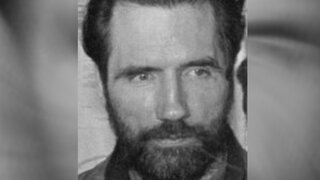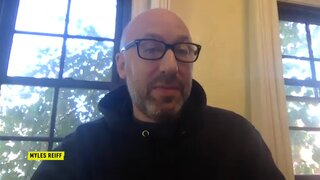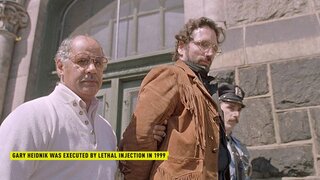Create a free profile to get unlimited access to exclusive videos, breaking news, sweepstakes, and more!
‘He Wanted To Have A Perfect Race Of Children’: Did Gary Heidnik Ever Have Kids?
After kidnapping six women, Gary Heidnik’s ultimate goal was to impregnate them all in a twisted “birthing harem.” By that point, however, Heidnik already had multiple children.
When someone kidnaps six women, locks them up in a basement, and rapes and tortures them for months on end, an immediate thought is: Why? Why would someone do something so depraved, so hideously awful?
In the case of Gary Heidnik, the subject of Oxygen’s new special “Monster Preacher,” there will never be a consensus on why he committed such crimes in 1980s Philadelphia. Some say he did it because he was seriously mentally ill, while others insist it was because he was just pure evil. But Heidnik did, apparently, tell the captives why he personally believed he was holding them as prisoners.
“I want to have kids, lots of them. I got kids already but the state keeps taking them off me. Well, I got a way now of having kids so nobody can take them away. You’re just the start. You gonna have my baby down here. But not just you. I want to get 10 girls down here so you can all have my kids,” he told Josefina Rivera, one of his surviving victims, according to a 2014 interview she gave to The Mirror.
Heidnik, who was born in 1943 in Ohio, apparently craved a family of his own after a lonely, emotionally fraught childhood. His father was abusive, and his mother had mental health problems.
“The whole family was screwed up and weird. My mom told me how their dad beat Gary real bad with a toy wooden airplane because he peed his pants. His dad was an alcoholic, and his mom took poison. They found her in the basement. She was tired of the abuse. They were really sick parents, and they gave their kids some serious problems. Gary and my dad left Ohio at some point, and I’m not exactly sure how we wound up in Pennsylvania,” Heidnik’s niece, Shannon Heidnik, told Philadelphia Magazine in 2007.
Heidnik bounced around a bit after high school. He served in the Army as a medic but was honorably discharged on grounds of mental health issues. He got a nursing degree but was fired from the veteran hospital he worked at due to a spotty attendance record and a bad attitude. Eventually, in 1971, he settled on a path: He devoted himself to religion and formed The United Church of the Ministers of God in 1971 in a North Philadelphia neighborhood.
Next up for Heidnik was finding a wife and a child, which he went about in alarming ways. John Cassidy, a friend of his during this period, told Philadelphia Magazine that Heidnik always dated Black women with mental disabilities. One such woman was Gail Lincow. They had a son named Gary Jr. who was put into foster care shortly after he was born, according to RJ Parker’s book “The Basement.”
Another was Anjeanette Davidson, with whom he had a daughter, Maxine, in 1978. Maxine, too, was placed in foster care because of her mother’s mental disabilities.
Shortly afterward, Heidnik was sent to prison. He had kidnapped Davidson’s mentally disabled sister, Alberta Davidson, from the institution she lived in, allegedly raped her, and kept her in his basement storage room. Authorities were able to locate Alberta and charge Heidnik with a variety of crimes, but because Alberta was deemed mentally unfit to take the stand, Heidnik was only convicted of the less serious charges. He was sentenced to three to seven years in prison, and ultimately served a little over four years.
The time away didn’t dampen his obsession with building a family, though.
“When he got out, he couldn’t find Anjeanette, and he felt society owed him a wife and family,” Rivera told Philadelphia Magazine.
Heidnik used a matrimonial service in 1983 to meet Betsy Disto, a woman in the Philippines. They exchanged letters before Disto came to the U.S. in 1985 and wedded Heidnik.
The marriage was an utter disaster. It ended within a few short months and Disto went to authorities, accusing Heidnik of raping her. Heidnik was charged with indecent assault, spousal rape, assault, and involuntary deviant sexual intercourse, but all the charges were dropped after Disto failed to show up for the first hearing. She had fled with aid from the Philadelphia’s Filipino community and went into hiding, according to “The Basement.”
Disto eventually resurfaced in Heidnik’s life when she asked for child support — she had given birth to Heidnik’s son, Jesse john Disto, in September 1986. Heidnik did not have a relationship with either of them, though, Parker wrote. His other two children were in foster care. He had no wife. His fantasy of a family had gone nowhere.
In November of that year, he kidnapped Rivera.
He then kidnapped another five women, torturing and raping them in his basement to fulfill his dreams of a “birthing harem” until Rivera escaped in March 1987 and contacted authorities.
“He wanted to have a perfect race of children from these women,” defense attorney Chuck Peruto told WPVI-TV, a local news station, in 2019.
Little is known about Jesse John Disto and Gary Jr., but Maxine Davidson White did eventually appear in the public eye — because she wanted to save her father from execution.
Heidnik had been convicted of rape, kidnapping, and murder, among other charges, in 1988 and sentenced to death. Heidnik refused to ever admit guilt, stating at his trial, "I say real or phony, they can execute me, because I am innocent and I can prove it […] That is the end of capital punishment in this state. When you execute an innocent man, knowingly execute an innocent man, you know there will be no more capital punishment in this state and possibly anywhere else in this country. And you know I didn't kill them two women. Go ahead and execute me ... Yes, I want you to execute an innocent man so there will be no more capital punishment,” according to a Post-Gazette article at the time of his execution.
But while Heidnik didn’t fight his execution, his daughter did on his behalf, even taking his case up to the Supreme Court in an attempt to overturn his death sentence. When she lost her final appeal, her attorney Kathy Swedlow told the Post-Gazette that White was devastated.
"The state has executed an extremely mentally ill and psychotic man," Swedlow said.
On the day of his execution — July 6, 1999 — White visited her father one last time for about an hour. She did not stay for his execution.
White, a student at Temple University at the time, refused to speak to reporters. Little is known of her life since Heidnik’s death.
For more on Heidnik’s crimes and to hear from two of his victims, watch “Monster Preacher” on Oxygen.






















